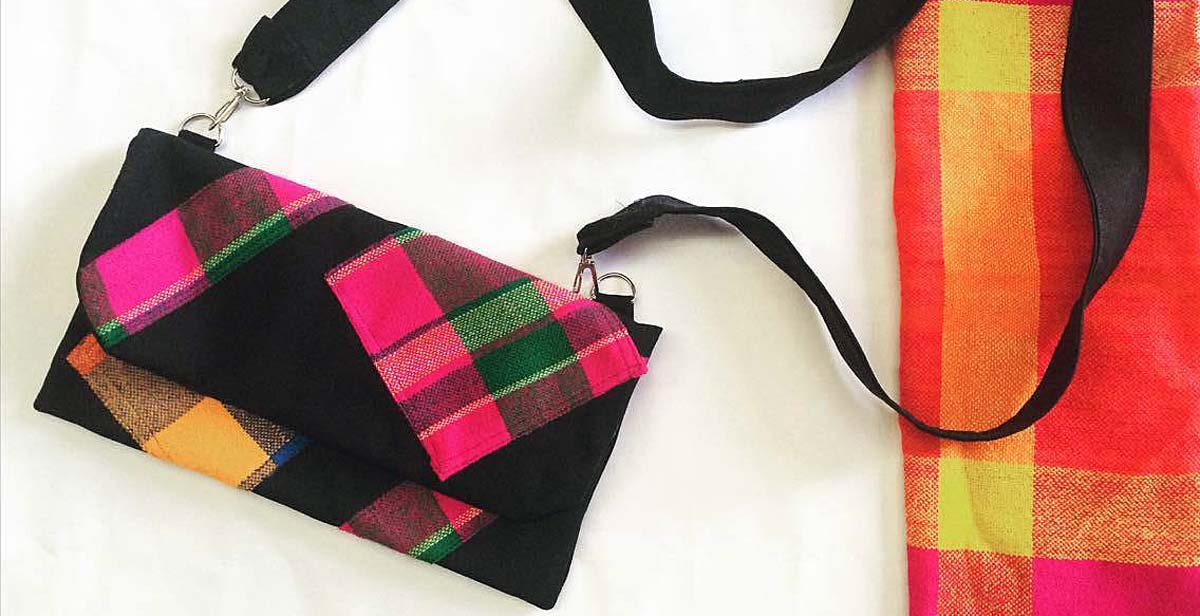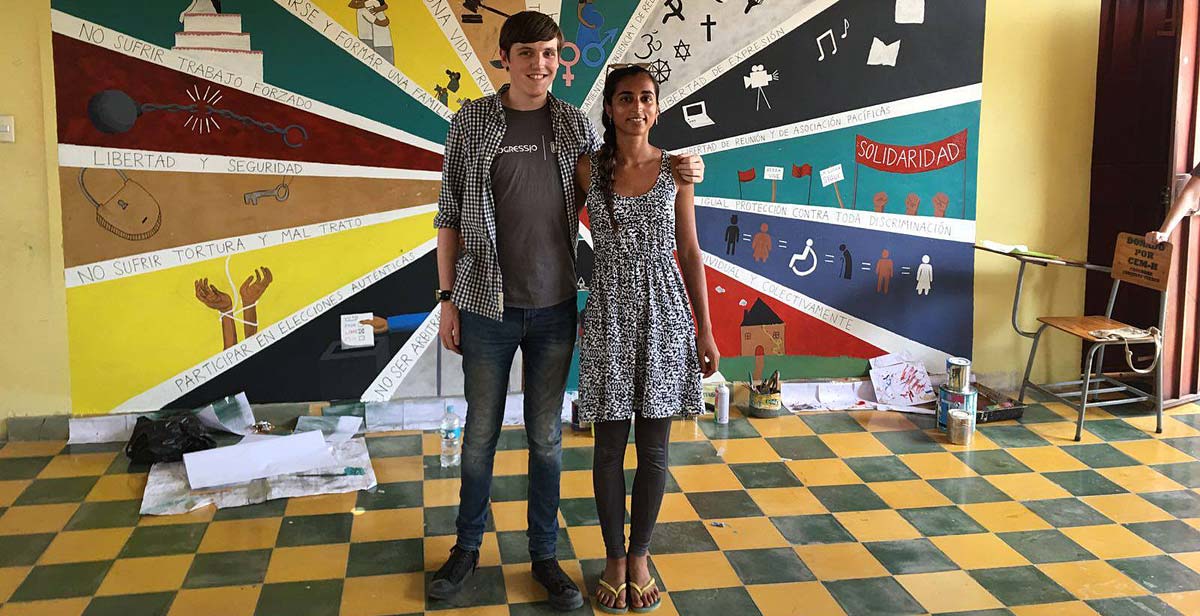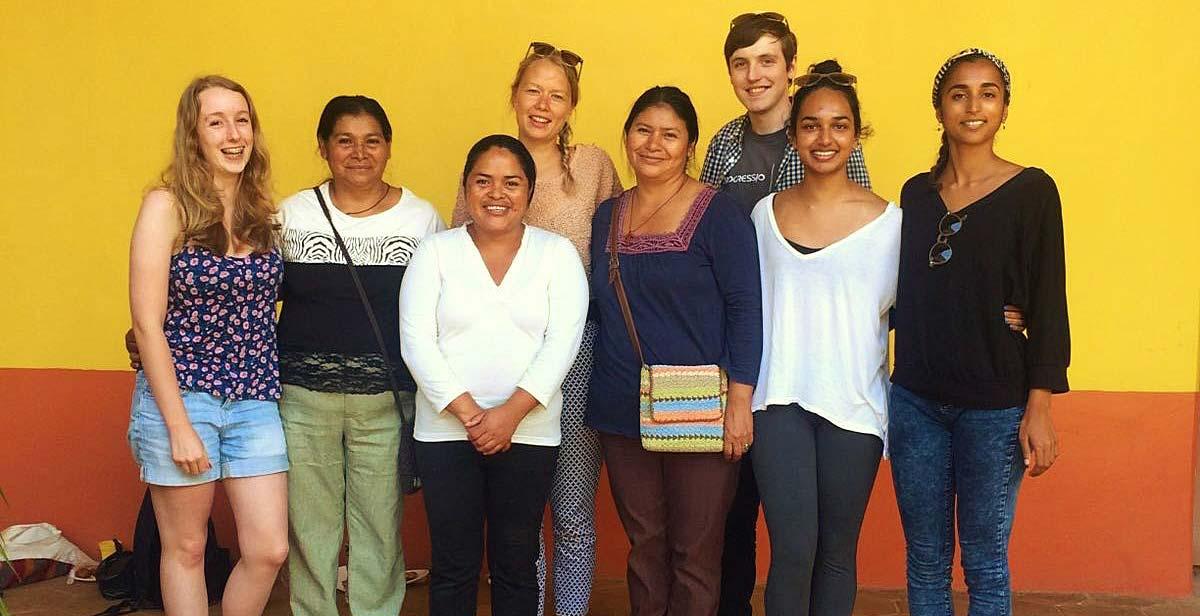For some people, an extended trip abroad can result in a dramatic ‘finding yourself’, eureka-moment. Having met many a traveller who returns from backpacking and proclaims to have done just that, I was keen not to get caught up in the idea of my ICS placement in Honduras being life changing. However, having completed my three-month placement, I can confirm that ICS is a dramatic change from your normal everyday life in the UK and it does pose the possibility of experiencing life changing moments. But for me, the lessons I’ve kept 4 months on, and those which have engrained themselves in my everyday life, have been less hyperbolic. My ICS placement has resulted in small changes, but ones that I know I’ll carry with me for the foreseeable future - creating my own motivations, cutting bad habits and reflecting on how fortunate I am.
Exercise
Now I’ve always been the sort of person that decides to take up a new exercise plan, goes over the top with it for about a month and then firmly decides never to do it again. Whilst in Honduras I, alongside two other ICS volunteers, decided to do the 30-day ab challenge. Not so difficult you might think? Well, combine intermittent water and power cuts, 30+ degree heat at times and icy winds at other times (our house didn’t have windows in the conventional sense of the word), and a personal aversion to sit ups, and you have a not-too-pleasant bedtime ritual.
Although keeping fit and healthy can be challenging whilst on placement, when you have little control over the food your host family gives you and have to adhere to a curfew, starting something like the ab challenge can give structure to your day. When things were going badly with the project but I ticked off another day on the ab challenge, I felt a (arguably misguided) sense of achievement. When I’d eaten a few too many baleadas (as you undoubtedly will whilst in Honduras) and hadn’t quite finished my monitoring and evaluation report, at least I’d done some crunches, right?
Since coming home, I’ve taken this on board and signed up to a half marathon where I will be making my way around 13.1 miles of London - a distance I never thought I’d be excited to run. This too has given structure to my day, and gives me a real sense of achievement every time I make it out for a run. If you’re about to go on placement, then pick something you’ve always wanted to get good at, and stick with it - you’ll be amazed at how much progress you can make in a few months.
Screen time
During our time in Honduras, I think it’s safe to say that we all realised our Wi-Fi addiction was real. A familiar sight in the local café 'La Fuente’, would be ICS volunteers enjoying the best baleadas in town and catching up on the week’s news from home via Whatsapp, Skype and Facebook. What started as a weekly treat when the ICS group from a nearby village came to have Spanish lessons with us, rapidly descended into almost daily top ups of internet. Seeing as none of us expected to have internet access before we came to Honduras, and I had prepared to be completely cut off for three months, our lack of willpower was shocking. Whilst having Wi-Fi was incredibly useful for our project (whilst researching and marketing our Lenca products, such as the bag below, for example), I also think that ICS is about living in a completely different way to what you’re used to. Check out the Facebook page we created for the Lenca group, Lenca Unidas, here.

For those of you who are worried about life without Wi-Fi, some of my best memories from Honduras were during power cuts when we were forced to talk to our host family without the help of Google Translate. Managing to have a full conversation about my host mum Ana’s childhood and hopes and dreams for the future was a definite high point for me and made me more confident in my Spanish speaking abilities. And since being back and starting an office job (in sunny Birmingham no less!) where I spend the majority of my working day in front of a computer, I’ve started to appreciate screen-free time. Curbing your Wi-Fi addiction whilst on placement leaves plenty of time to enjoy the local sights and spend time getting to know your host community.
Food
A past ICS volunteer said that in contrast to how we view mealtimes in the UK, for much of the developing world, ‘food is for sustenance, not pleasure’. At the time I didn’t realise how important this piece of advice was. It contrasts the often greedy way we consume - food, resources, money - in the West with the plight of many families who can’t afford to feed themselves and their children.
For three months we were no longer able to eat when we wanted to, cook what we fancied or rifle through the fridge for some snacks. At the time this made me think ‘not another tortilla!’ at almost every mealtime, but seeing the austere way they consume food made me savour the occasional treat from a pulperia (corner shop) even more. It also made the contrast to Semana Santa (Easter Week) even more incredible. Families celebrated their faith through feasts which, although modest in most cases, showed the value that Hondurans place on celebrating as a family. Seemingly endless knocks on the door from extended family members culminated in the ceremonious unwrapping of tamales (dumplings steamed in banana leaves), the cutting of cake and curtain-twitching as we waited for the Easter procession to pass. For me the atmosphere was akin to Christmas in the UK, and that experience has taught me that, even with very little resources, having your family and friends around you is reason enough to celebrate.
If like me, food, keeping healthy and contacting home feature on your list of fears pre-placement, I’m here to tell you that you will miss all of the above. I’m also here to say it will be the best lesson you could hope for in living humbly, cutting bad habits and changing your daily life for the better.

Written by ICS Alumni Hayley D’Souza (January - March 2016, Honduras)



